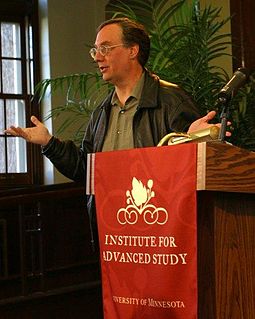A Quote by Henry Giroux
If the government were to invest that money in higher education and public services, these would be far better investments. But administrators and academics in the U.S. for the most part don't make these arguments; instead they have retreated from defending the university as a citadel of public values and in doing so have abdicated any sense of social responsibility to the idea of the university as a site of inspired by the search for truth, justice, freedom, and dignity.
Quote Topics
Academics
Administrators
Any
Better
Citadel
Defending
Dignity
Doing
Education
Far
Freedom
Government
Higher
Higher Education
Idea
Inspired
Instead
Invest
Investments
Justice
Make
Money
Most
Part
Public
Public Service
Responsibility
Search
Search For Truth
Sense
Services
Site
Social
Social Responsibility
Truth
University
Values
Were
Would
Would Be
Related Quotes
Many faculty retreated into academic specializations and an arcane language that made them irrelevant to the task of defending the university as a public good, except for in some cases a very small audience. This has become more and more clear in the last few years as academics have become so insular, often unwilling or unable to defend the university as a public good, in spite of the widespread attacks on academic freedom, the role of the university as a democratic public sphere, and the increasing reduction of knowledge to a saleable commodity, and students to customers.
Many university presidents assume the language and behavior of CEOs and in doing so they are completely reneging on the public mission of the universities. The state is radically defunding public universities and university presidents, for the most part, rather than defending higher education as a public good, are trying to privatize their institutions in order to remove them from the political control of state governments. This is not a worthy or productive strategy.
University presidents should be loud and forceful in defending the university as a social good, essential to the democratic culture and economy of a nation. They should be criticizing the prioritizing of funds for military and prison expenditures over funds for higher education. And this argument should be made as a defense of education, as a crucial public good, and it should be taken seriously. But they aren't making these arguments.
It is fitting that the Government of the United States should assume the obligation of the establishment and maintenance of a first-class university for the education of colored menand I wish to put in this caveatthat the colored race today, all of them, would be better off if they all had university education.... Of course, the basis of education of the colored people is in the primary schools and in industrial schools.... In those schools must be introduced teachers from such university institutions as this.
I am told that today rather more than 60 per cent of the men who go to university go on a Government grant. This is a new class that has entered upon the scene. It is the white-collar proletariat. They do not go to university to acquire culture but to get a job, and when they have got one, scamp it. They have no manners and are woefully unable to deal with any social predicament. Their idea of a celebration is to go to a public house and drink six beers. They are mean, malicious and envious . They are scum.
The demise of higher education as a public good is also evident in light of the election of a number of right-wing politicians who are cutting funds for state universities and doing everything they can to turn them in training centers to fill the needs of corporations. This new and intense attack on both the social state and higher education completely undermines the public nature of what education is all about.
I was in this public high school in Princeton, and it had this topnotch jazz program - if you were a musician of any kind of caliber, your holy grail was to be in that orchestra. It was that claim to fame of the school, of the town, other than the university. But it was better than the university band.
I fear that the impact of university censorship and university denial of due process will be to mis-educate a generation of students away from core values of civil liberties and constitutional safeguards. Students who have been led to believe by university administrators and faculty that censorship and denial of due process are acceptable norms will be more susceptible to accepting those norms in their post-university lives. That would be a tragedy for America.
Public education is a great instrument of social change. Through it, if we so desire, we can make our country more nearly a democracy without classes. To do so will require the efforts of us all-teachers, administrators, taxpayers and statesmen. Education is a social process, perhaps the most important process in determining the future of our country; it should command a far larger portion of our national income than it does today.
If it's really true, that the museum at Liberty University has dinosaur fossils which are labelled as being 3000 years old, then that is an educational disgrace. It is debauching the whole idea of a university, and I would strongly encourage any members of Liberty University who may be here to leave and go to a proper university.
The years I would have spent at University, I spent building Student Magazine and Virgin Records. For me that was far more fun and satisfying. I have treated everyday as the University education I never had and think I learnt more about business and life than I would have at University in the process.






























